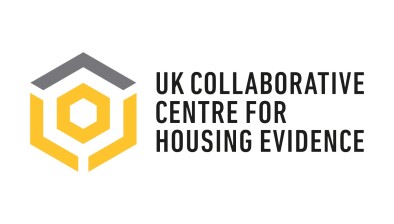Professor Ken Gibb: Student housing - an impact story

Professor Ken Gibb
Professor Ken Gibb discusses the complexities of student accommodation research in Scotland, referencing the work carried out by the University of Glasgow’s Road to Home initiative and key recommendations.
Until 2021, my housing research path had never led me to work on student accommodation. In the autumn of that year, I was contacted by staff involved in student recruitment at my college and in senior management, who asked whether I could write a short briefing paper about the apparent tightening of the student accommodation market in Glasgow. I interviewed a few people internally and externally and started to get a sense of the student accommodation eco-system comprising student halls, people living in their own or the parental home, students in the HMO part of the private rented sector and also the private institutional player, Purpose Built Student Accommodation (PBSA).
Doing this first piece of work also taught me that the evidence is flimsy regarding student housing; also, that there was strong anecdotal evidence (I would go as far to say a consensus) that HMO landlords were exiting the student market because it was more risky than HMOs for people in work. This increased the number of students chasing fewer bed spaces (and PBSA was not growing fast enough or arguably targeted at the right market segments), creating excess demand.
During the interviews, I spoke to the Scottish Government team, which was convening the Government’s review of PBSA. They were planning to re-tender a large research project on PBSA in Scotland. CaCHE decided to bid for it, with colleagues from the Universities of Sheffield, Liverpool and Cardiff joining us at Glasgow and collaborators from Rettie and Co. We won the tender and carried out the project through 2022, publishing the report in December. The research worked closely with the review team and the Scottish Government funders, triangulating evidence review, key actor elite interviews within the sector and three case studies (Glasgow, Edinburgh and St Andrews) based on semi-structured interviews with students and local stakeholders. The report included recommendations to inform the wider PBSA review that would, in turn, put recommendations to Scottish Ministers.
Meanwhile, in the autumn of 2022, a crisis emerged in several Universities but primarily in Glasgow, where rising student numbers could not be fully housed by available accommodation, and guarantees were not met, resulting in student homelessness, emergency solutions, reputational damage to the institution, but also suffering and anxiety for all those involved. The University made a gargantuan effort to solve individual problems and invested in additional nominated spaces in the local PBSA sector. As a result of these problems, the Road to Home homelessness initiative at the University, in partnership with CaCHE, decided to examine the causes of this crisis and consider possible immediate and structural solutions. A policy briefing paper on this research has now been published, and more research is still to come.
CaCHE also collaborated with Rettie and Co to write an as yet unpublished paper for the regulator of the codes used by PBSA providers, Unipol, about the state of student accommodation in Scotland in 2023. The main message from this paper is that student numbers have fallen in an unplanned way across the UK – particularly for international students, and this has, to an extent, reversed the excess demand problem, at least temporarily. There are specific reasons for this trend reversal, including readjustment after the initial post-COVID boom, countries like Nigeria reducing applications after their currency weakened, and the UK Government’s ending of family visas for international students. The PGT world is one of one-year planning horizons. As a result, Universities are looking nervously at what will happen in the autumn of 2024. In 2023-24, Glasgow turned out not to need all the nominated spaces it had in the PBSA sector.
In the last six weeks, CaCHE has supported the development of a new cross-party group (housing) project at Holyrood on student homelessness and wider student accommodation. The work is not just about students directly but for instance debates the impact of extensive PBSA development in pressured housing markets with insufficient affordable housing, like Edinburgh but increasingly also in Glasgow.
In the first workshop meeting of this project earlier this month, one of the attendees posted in the chat the Scottish Government’s response to a question in Holyrood asking for the long-awaited Ministers’ response to the PBSA review in 2022-3. The key government proposals arising from the review included a number taken directly from the CaCHE research (items 2-4 and 5-10 below):
‘The Scottish Government received 11 recommendations formulated by the Purpose Built Student Accommodation (PBSA) Review Group. These are listed below and have been fully accepted by Ministers.
- That the Scottish Government works with partners to develop a Model Terms and Conditions to apply across all PBSA, both institutionally and privately operated.
- That the Scottish Government consults widely on the scope to legislate on PBSA regulation, specifically in respect of notice periods and cooling off period for PBSA tenants, including identifying what circumstances should apply in such cases and potential impact on investment and rent levels.
- That Higher Education Institutions work with partners to develop and distribute information packs for student tenants in both institutional and private PBSA properties, outlining the existing routes for progressing complaints and redress, including through the SPSO and the First-Tier Tribunals system. These information packs should contain clear links to regularly updated relevant online content.
- That the Scottish Government works with partners to scope the development of a Model Complaints Procedure to be adopted across all types of PBSA.
- That the Scottish Government convenes a national round table discussion with HEIs, private PBSA providers, investors/developers, students, and local authorities, to explore improvements in relation to ensuring the housing needs of students are met.
- That strategic partnerships be established at local level, involving all those involved in provision / use of student accommodation to consider / address supply issues at local level in the short, medium, and long-term.
- That the Scottish Government works with partners to identify and address barriers to expanding the supply of affordable accommodation for students through e.g. the repurposing of existing buildings and the utilisation of alternative housing models e.g. housing co-operatives.
- That the Scottish Government and Higher Education Institutions actively engage with property investors/developers in the private sector to encourage the development of a more diverse range of student accommodation properties, which could meet the needs of families and those on lower incomes.
- That Higher Education Institutions and providers of private PBSA work more closely together to ensure students get the information they need, including consideration of data sharing agreements.
- That Higher Education Institutions provide to all tenants residing in University or privately-run PBSA information on student support available through institutions, and how to access this. This should be available in formats other than online, and frontline staff working within all types of PBSA should have ready access to this information in order to provide advice when needed.
- That the Scottish Government engages with Home Office on the provision of student dependents’ data for international students taking up places at Scottish universities’.
We were particularly pleased to see recommendations 5, 6, 7 and 8 were included as they are essential to better long term planning for student housing and widening the offeror range of provision, thereby helping with affordability. We also welcome the 3rd 4th and 10th recommendations that also came out strongly from our research. I would also note that we supported the appropriate repurposing of existing accommodation – not in any way a blanket approval.
Given that student accommodation research was not among our CaCHE priorities set in 2018, this has been a remarkable journey to policy impact in less than three years. Now, we need to carry on and make the case for much better evidence and data in the sector, as well as supporting a range of different models of affordable provision – we still don’t know for sure how many student HMOs have departed that market segment in Scotland, and we still have poor data on student affordability, both for rents and especially incomes. We are also engaging with Glasgow City Council regarding the longer-term requirement for PBSA and other accommodation models to help solve the city of Glasgow’s structural student housing imbalance. This is an important research agenda for CaCHE to continue with over at least the next three years.
Thanks in particular to all of the people who have contributed to this research journey including Tom Moore, Jenny Hoolachan, Jenny Preece, Moira Munro, Victoria Lawson, John Boyle and Katy Dickson, all of our willing interviewees, and the many non-academic colleagues at the University of Glasgow working in student recruitment, accommodation services, counselling and planning.
- Prof Ken Gibb is director and principal investigator of the UK Collaborative Centre for Housing Evidence (CaCHE). He is professor of housing economics (urban studies) within the School of Social and Political Sciences at the University of Glasgow
This article was originally published on the CaCHE website







